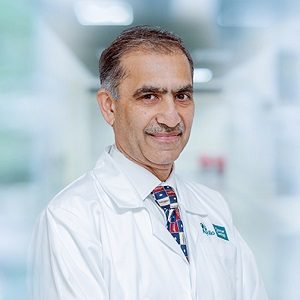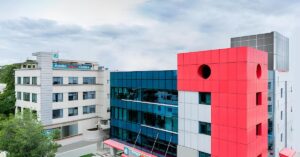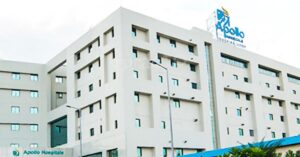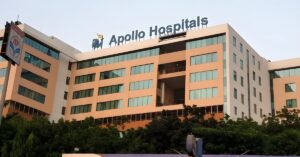Best Gamma Knife Radiosurgery Doctors in India
- Radiation Oncologist, Chennai, India
- Over 30 years’ experience
- Apollo Cancer Centre Chennai
Profile Highlights:
- Dr. Sanjay Chandrasekar is one of the top Radiation Oncologists in Chennai who has an extensive experience of more than 30 years in the field.
- He is currently serving as a Senior Consultant of Radiation Oncology at Apollo Cancer Centre in Chennai.
- His 30+ years-long journey in the field of oncology has brought him a lot of appreciation and recognition in his medical career.
- He has a great deal of expertise treating a range of cancer ailments such as brain tumors—both benign and malignant, head and neck cancers, lung cancer, and uro-gynecological cancers.
- Over the years he has also published numerous papers in peer-reviewed journals on both national and international level. In addition, he has received several honors and commendations for his efforts.
Best Gamma Knife Radiosurgery Hospitals in India
- City: New Delhi, India
Hospital Highlights:
- Equipped with 650 beds, BLK-Max Super Speciality Hospital is the largest stand-alone private sector hospital in Delhi.
- With over 1500 healthcare providers and 150 globally renowned super specialists, the hospital is one of Asia’s largest BMT Centres. The hospital is known for having some of the best cancer doctors in the country.
- The hospital is NABH and NABL accredited and was inaugurated by the first Prime Minister of India. Pt. Jawahar Lal Nehru.
- City: Hyderabad, India
Hospital Highlights:
- Located in the vibrant city of Hyderabad, Apollo Health City is a world-renowned medical facility that provides outstanding care and treatment to patients coming from different parts of the world.
- Founded in 1988, this 550-bed multispecialty hospital with 50 specialties and 12 Centres of Excellence continues to deliver outstanding outcomes for patients with the simplest to the most complicated medical conditions.
- Backed by the latest medical equipment and a dedicated team of professionals, the hospital provides comprehensive treatment across various specialties including, cardiology, critical care, neurosciences, cancer, orthopedics, gynecology, ENT, transplants, gastroenterology, etc.
- Apollo Health City is a cutting-edge healthcare facility that combines various facilities under one roof. These may include state-of-the-art physical medicine, rehabilitation, and wellness services with education, research, telemedicine, innovative medical devices, disease management programmes, and medical talents.
- The hospital is known for offering top-notch cancer treatment accompanied by cutting-edge facilities and technology.
- The hospital also offers a broad spectrum of cosmetic procedures that improve not just appearance but also comfort.
- In 2011, Apollo Health City was the recipient of the Asian Hospital Management Award (AHMA).
- In 2013, the Government of India recognized Apollo Health City as the top medical tourism destination in the country.
- City: Mumbai, India
Hospital Highlights:
- Kokilaben Dhirubhai Ambani Hospital, Named after the wife of Indian industrialist Dhirubhai Ambani, the founder of Reliance Industries, this is one of the top hospitals in Mumbai. This 750-bed multi-specialty hospital became operational in 2009. Known as one of India’s most advanced tertiary care facilities, the hospital is designed to raise India’s global standing as a healthcare hub, with an emphasis on excellence in clinical services.
- Kokilaben Dhirubhai Ambani Hospital uses Protocol and Care Pathway based treatment models to ensure the best outcomes for patients.
- The hospital represents a confluence of top-notch talent, cutting-edge technology, state-of-the-art infrastructure, and, most importantly commitment.
- The hospital also holds the accreditation of the NABH, NABL, CAP, and JCI.
- The hospital has been recognized as the No. 1 Multispecialty Hospital in Mumbai and the West Zone for the fifth year in a row in 2020 by The Week.
- City: Chennai, India
Hospital Highlights:
- Apollo Cancer Centre in Teynampet, Chennai is one of the best super speciality hospitals in India. It is the country’s first ISO-certified healthcare facility.
- Additionally, it is the first hospital in Chennai and the first oncology hospital in India to receive NABH accreditation.
- The hospital provides advanced tertiary care in oncology, orthopedics, neurology and neurosurgery, head and neck surgery, and reconstructive and plastic surgery.
- Additionally, it offers specialized healthcare of international standards with results comparable to those of the best hospitals in the world.
- It is outfitted with 300 beds, the newest and greatest technology, a large pool of highly qualified specialists, and a committed team of medical and paramedical professionals.
- It is one of the first few medical facilities in India to offer comprehensive cancer care. A team of skilled medical, surgical, and radiation oncologists makes up the Tumour Board, which is a component of the complete treatment planning system. After reviewing reported cases, the Board determines in concert with diagnostic specialists what course of action is best for each individual patient. The panel is further supported by dieticians, medical counselors, speech therapists, and other pertinent specialists.
- The hospital launched the first ExcelsiusGPS® Spine Robot in South India and has completed over 50 surgeries till date.
- It is also one of the few cancer hospitals in India to offer Cyber Knife therapy. Till now it has completed 1320 Cyber Knife therapies.
- The institution is also one of the few in India with the capacity to do transplants and find a prospective unrelated donor. The hospital has performed over 1000 BMTs till now.
- Furthermore, it has an exceptional milestone of performing exultant Micro vascular free tissue transfer and Aesthetic surgeries on more than 1000 patients with success.
- City: Chennai, India
Hospital Highlights:
- Apollo Hospitals, Chennai, is one of the best hospitals for heart care in India. Over the years, Apollo has expanded all over India, as a healthcare chain.
- India’s first ‘Only Pancreas’ transplant was performed in Apollo Hospital. The hospital is known for successfully performing Asia’s first en-bloc combined heart and liver transplant, and over the years, it has attained a remarkable achievement in the global healthcare space. Around 3-4 organ transplants are performed in the hospital per day.
- Equipped with over 500 beds, this hospital in Chennai was established in 1983 and since then has been among the most preferred hospital for patients from all over the world.
- The hospital holds accreditation of the NABH and JCI and is the first hospital in India to be ISO 9001 and ISO 14001 certified. It is also the first South Indian Hospital to receive subsequent reaccreditation from the JCI USA 4 times.
- City: Chennai, India
Hospital Highlights:
- Established in 1999, Gleneagles Global Hospital, Chennai, is one of the top healthcare facilities in Southern India. It is part of the Gleneagles Hospital Chain, which is the fourth largest healthcare chain in the country. The hospital specializes in multi-organ transplants of kidneys, liver, lungs, heart, etc.
- The hospital has an excellent infrastructure and state-of-the-art lab and equipment set-up. The hospital boasts cutting-edge technologies, a highly skilled team of doctors and surgeons, and trained support staff. Located in Perumbakam, Chennai, it is one of India’s premier health care destinations. The hospital has performed some of the most complex surgical and clinical procedures in India including multi-organ transplantations.
- The hospital’s lung transplantation program is one of the best in the country. The hospital is known for having performed India’s first single lung transplant and first minimal invasive lung transplant. It is also the only Indian hospital to be associated with King’s College Hospital, London, United Kingdom for liver transplantations.
- City: Hyderabad, India
Hospital Highlights:
- KIMS Hospital (a brand name of Krishna Institute of Medical Sciences) is one of the largest and best multi-speciality hospitals in Hyderabad. The hospital provides various treatments to an enormous number of patients.
- The hospital has a capacity of more than 3000 beds. KIMS Hospitals offers different healthcare services in more than 25 specialities and super specialities.
- The hospital is equipped with modern medical equipment and technology. It has robotic equipment to provide minimal invasive techniques for patients.
- The hospital is aimed at providing world-class healthcare facilities and services at an affordable cost for patients.
- The various specialities and departments of the hospital include neurosciences, gastroenterology & hepatology, robotic science, reproductive sciences, dental science, oncological sciences, organ transplantation, heart and lung transplantation and mother and child care.
- City: Kolkata, India
Hospital Highlights:
- Established in 2003, Apollo Gleneagles Hospitals is a 750-bed multispecialty tertiary care hospital situated in Kolkata.
- With 33 Centres of Excellence and more than 50 specialties, Apollo Gleneagles Hospitals, Kolkata is capable of handling all sorts of patients.
- This tertiary care hospital, which is a 100% subsidiary of Apollo Hospitals Enterprise Ltd., India, is regarded as one of Kolkata’s top hospitals.
- The facility is a complete blend of cutting-edge technology, state-of-the-art infrastructure, and genuine hospitality.
- Focusing on numerous specialties, the hospital provides all-inclusive medical treatments supported by cutting-edge technology and a staff of highly qualified medical specialists.
- Patients across the globe come to Apollo Gleneagles Hospitals Kolkata for their treatment. Moreover, international patients receive full attention and assistance for their treatment and are provided with a hassle free experience.
- Apollo Gleneagles Hospitals, Kolkata is the only hospital in Eastern India to hold the Joint Commission International (JCI) certificate.
- It is also the only hospital in Kolkata to hold the NABL accreditation in six different categories, which includes Clinical Biochemistry, Clinical Pathology, Hematology & Immunohematology, Microbiology & Serology, and Histopathology & Cytopathology.
- Furthermore, Apollo Gleneagles Hospitals, Kolkata is known for performing the first ever Reverse Shoulder Prosthesis Replacement in East India.
- City: Bengaluru, India
Hospital Highlights:
- Established in 1991, Manipal Hospital, Old Airport Road, Bangalore is the flagship facility of the Manipal Hospitals Group, which is one of the largest networks of Multispecialty Private Hospitals in India.
- The facility is well-known for its state-of-the-art technology, performance-driven, patient-centric, and evidence-based approach.
- The facilities offered at Manipal Hospital meet the highest international standards, allowing the hospital to attract a large number of national and international patients.
- Their expertise encompasses the diagnosis and treatment of a wide range of diseases in several specializations that address both simple as well as complex medical procedures.
- There are total 600 beds accessible in the hospital for the in-patients so they may heal while being closely watched after by the medical team. In addition, it has 144 critical care units, including NICUs, ICCUs, and ICUs. Apart from that, the hospital also offers 20 contemporary, modular state-of-the-art operating rooms with all the amenities needed.
- The hospital has several departments that are overseen by highly skilled, certified, and experienced medical experts.
- One of the best departments in the hospital is that of the Cancer department which is known for its advanced cancer diagnosis and treatment facilities such as Intracavitary Chemotherapy, Biological Therapy, HIPEC, PIPEC, Nuclear Medicine, Radiation Therapy, etc.
- It is one of the few hospitals in Bangalore that provides full range of pediatric services, including pediatric emergency services, pediatric gastroenterology, pediatric neurology, pediatric cardiology, pediatric orthopaedics, pediatric allergies, pediatric immunology, and infectious diseases.
- Furthermore, Manipal Hospital, Old Airport Road, Bangalore is also regarded as one of the best hospitals for bone and spine related disorders.
- City: Mumbai, India
Hospital Highlights:
- Established in 2016, Apollo Hospitals, Navi Mumbai is one of Maharashtra’s most advanced multispecialty hospital. This 500-bed hospital provides sophisticated treatments and integrated super specialty services under one roof.
- The hospital features a cutting-edge infrastructure that houses 13 state-of-the-art operating rooms, advanced laboratory and medical diagnostics, and 120 ultra-modern I.C.U. beds, including N.I.C.U. and P.I.C.U., monitored round the clock by critical care specialists.
- With 57 specialties and subspecialties, the hospital boasts a team of renowned medical specialists who offer accurate diagnosis and treatment with easy accessibility to their patients.
- Additionally, the hospital offers highly customized, individualized health check programs that are made to fit each person’s needs in terms of lifestyle.
- Apollo Hospitals, Navi Mumbai has been accredited by both the National Accreditation Board for Hospitals and Healthcare Providers (NABH) and the Joint Commission International (JCI).
- Apollo Hospitals Navi Mumbai has been awarded the “Best Practices-International Services Award” at the annual awards for service excellence and operations excellence.
Gamma Knife Radiosurgery
Purpose
Gamma Knife radiosurgery is considered a safer alternative to standard brain surgery i.e. neurosurgery. Standard brain surgery requires incisions in the scalp, an opening in the skull as well as the membranes surrounding the brain. Then your surgeon needs to dissect into the brain tissue. However, these steps are not required with gamma knife radiosurgery.
Gamma Knife radiosurgery is considered when a tumor or other abnormality in the brain is difficult to reach with standard neurosurgery. It is also preferred by patients by aren’t healthy enough to undergo standard surgery or by patients who prefer a lesser invasive treatment.
In some cases, Gamma Knife radiosurgery has a lower risk of side effects as compared to other types of radiation therapies. Compared to conventional radiation therapy which requires up to 30 days of treatment, gamma knife radiosurgery can be completed in a single day.
This procedure is most usually used to treat the following conditions-
Brain tumor: Gamma knife radiosurgery is quite useful in the management of small noncancerous and cancerous brain tumors.
Radiosurgery can damage the genetic material in the tumor cells. These cells lose their ability to reproduce and thus they die leading to the tumor to gradually shrink.
Arteriovenous malformation (AVM): AVMs are abnormal tangles of veins and arteries in the brain. In an AVM, blood flows from the arteries to the veins, bypassing smaller blood vessels which are also known as capillaries. AVMs, if left untreated, may “steal” the normal blood flow from the brain. This can cause a stroke and cause bleeding in the brain.
Gamma Knife Radiosurgery can effectively destroy the AVM and cause the blood vessels to close off over some time.
Trigeminal neuralgia: This is a disorder of one or both of the trigeminal nerves, which work to relay sensory information between your brain and areas of your forehead, cheek and lower jaw. This disorder can cause disabling facial pain which gives a feeling resembling an electric shock.
After this treatment, people will experience pain relief within a few days to a few months.
Pituitary tumors: Tumors of the bean-sized gland, located at the base of the brain can also cause multiple problems. The pituitary gland is responsible for the hormones in your body that control several functions, such as your metabolism, stress response, and sexual function.
Gamma Knife Radiosurgery can help in shrinking the tumor and it will also lessen the disruption of pituitary hormone regulation.
Acoustic neuroma: An acoustic neuroma also termed as a vestibular schwannoma is a noncancerous tumor that develops along the nerve of balance and hearing which leads from your inner ear to the brain.
When this tumor puts any pressure on the nerve, you can experience problems such as loss of hearing, loss of balance, dizziness as well as ringing in the ear. As the tumor continues to grow, it can even put pressure on your nerves affecting sensations and muscle movement in the face as well.
Gamma Knife Radiosurgery can help to stop the growth of an acoustic neuroma.
Preparation
First, the physician will be gathering your medical history and will be performing a complete physical exam. You might also need to undergo additional tests. If you are allergic to any medications or anesthetic agents have a heart pacemaker implanted medication pump, aneurysm clip, implanted nerve stimulator, metal from trauma, metal implants, severe lung disease, cochlear implant, spine stabilization hardware or esophageal reflux, then you need to inform your doctor. You also need to inform him/her if you are unable to lie flat on your back for 30 to 60 seconds, or if you suffer from claustrophobia.
You will need to arrange for a friend or family member to go with you on the day of your procedure. A nurse will inform you a day before the procedure to confirm the arrival time and answer any queries that you might have. On the evening before the procedure, do not consume any food or drink after midnight. Also, remember to wash your scalp properly.
Remember to wear your hair loose and avoid any clips, bands or pins. Do not use any hair spray or any other kind of styling product.
On the morning of the treatment, take your medications with sips of water. Bring all prescribed and over-the-counter medications with you. Also, make sure that you wear comfortable clothing. Avoid wearing a shirt that needs to be put on and taken off over the head.
Procedure
First, you will lie on a bed that slides into the Gamma Knife machine. Your head frame will be securely attached to a helmet inside the machine.
An intravenous tube will deliver fluids to your bloodstream so that you are hydrated during the procedure. Soon the bed you lie on will be sliding into the gamma knife machine.
The time taken for the procedure to be completed can sometimes be less than an hour. In some cases, it can take around four hours. Usually, this depends on how big the target is.
You will not feel the radiation, during the procedure, nor will you hear any noise during the procedure. There will be a microphone through which you will be able to communicate with the doctors.
Though Gamma Knife radiosurgery is an outpatient procedure in some cases, an overnight stay at the hospital might be required.
After the Procedure
Once the procedure is complete, the head frame will be removed and you will be able to eat and drink again. If you experience headache, nausea or vomiting after the procedure, you will be receiving the appropriate medications. You might experience minor bleeding or tenderness at the pin sites.
It is recommended that you ask a friend or family member to stay with you for the first night after the treatment to watch for any side effects. For a minimum of one week, keep your head in an elevated position on a pillow. This can help lessen any swelling at the pin sites as well as help in minimizing pressure within your head.
How successful the treatment is, depends on several factors including the size, location, type of lesion, your personal medical history and several other factors. It is best to discuss your expectations and outlook with your doctors before the procedure.
Risks
Since Gamma Knife radiosurgery doesn’t involve surgical incisions, it is less risky as compared to traditional neurosurgery. In traditional neurosurgery, there are potential complications which are associated with anesthesia, bleeding and infection.
Usually, any early complications or side effects are temporary. Some patients can experience mild headaches, a tingling sensation on the scalp, nausea or vomiting. Sometimes, there might be other side effects too, which can include fatigue, swelling or scalp and hair problems.
Video explanation
Possible side-effects
Although Gamma Knife is a safe and widely accepted procedure, the patient may experience the following side-effects/discomforts during and after procedure:
- Local discomfort of the scalp at the sites where pins are inserted.
- Numbness of the scalp around pin, which may resolve over a day or two.
- Mild Headache & nausea, resolving rapidly.
FAQs
How effective is Gamma Knife surgery?
Gamma Knife Radiosurgery is considered quite effective. Seventy to 90 percent of AVMs are completely obliterated. Gamma Knife radiosurgery has prevented tumour growth in 97 percent of patients.
Is the Gamma Knife painful?
It is bloodless, virtually painless, does not result in hair loss and has a rapid return to pre-treatment activities.
How long does Gamma Knife surgery last?
30 minutes to 3 hours depending on the plan.












